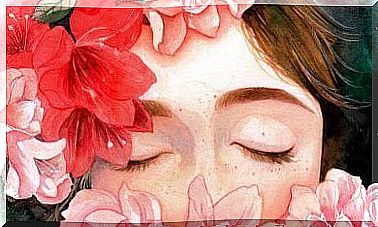The Day I Said Goodbye To The Bands, I Felt Free

Few feelings can be as cathartic, satisfying, and liberating as saying goodbye to complexes. The expression of one’s being and that “I love myself for who I am” act as authentic weapons of power, as caresses for our self-esteem and as iron shields against empty criticism and destructive comments.
Until recently, the subject of complexes was the territory of psychoanalytic jargon. Terms such as the Oedipus complex, the Bovary complex or the Electra complex formed a kind of bedside table or drawer of disasters in which to try to classify any behavior or personality trait.
The word complex was introduced by Carl G. Jung and popularized later by Freudian psychoanalysis. However, by it is meant the dense bush of terminology and evidence for categorizing human behavior, the indisputable central root of which is the feeling of inferiority.
Within the most elementary objectives of psychology, being able to identify and understand the origin of the responses generated by the mind with respect to the alleged defects or self-perceived shortcomings, is like removing the nails that support the door of a dungeon that has been closed for some time. . We are talking about a private space where you can breathe an atmosphere that must be ventilated and oxygenated thanks to new approaches and in the light of good self-esteem.
It is good to remember that it is not easy. The process of breaking or reformulating these self-destructive thought patterns takes time and therapeutic delicacy. As Freud himself said, sometimes behind a certain complex, a real trauma can be hidden.
Let’s analyze this topic in detail.

The origin of the complexes: an existential labyrinth
It is curious to analyze the etymology of some terms that are used so often. The word “complex” comes from the Latin ” complectere”, and means to embrace, to welcome. So, we are talking about a kind of hug given by a bear, of which one remains prisoner and becomes one being, the same entity and in which the predator and the prey coexist.
Any definition in the manuals tells us that complexes are fueled by our irrational thoughts. Phrases such as “with all these extra pounds I look like a whale”, “I am a coward, an ostrich that hides his head” or “I am worth nothing” are phrases that relentlessly feed the feeling of inferiority.
Well, there are nuances on which it is necessary to dwell: these irrational thoughts often come from precise real situations and painfully specific. Most of our complexes originate in childhood. A family that underestimates their children, that verbally despises them by resorting to irony, causes profound trauma.

Later, these traumas consolidate during adolescence. The lack of self-esteem and useful strategies to defend themselves and face the situation cause the young person to be overwhelmed by the often wild reality of the school. A place where every lack, physical or behavioral diversity or even dowry is cruelly underlined.
Say goodbye to the sense of inferiority
The sense of inferiority is that virus against which it is good to develop adequate immunity. Walking your own vital paths with a fragile self-esteem and your own self-concept hidden in the meanders of our mind generates serious consequences. Affective relationships, for example, can turn into authentic bonds of captivity, in which one has the power and the other suffers.
Nobody is worth more than us and we are not worth more than others. This is an aspect that we must keep in mind every day, despite the paws of that bear in us try to remind us several times how insignificant we are, how many defects we have and that it is not worth smiling.
That’s not good: you need to address these thought patterns.

Key points for change: recover your self-esteem
There is no easy path. To recover one’s self-esteem, one must ascend a curved path paved with stones, in which only will and courage will allow us to reach the top. A peak where you can finally shout “I love myself for who I am, I’m fine, I’m a wonderful person, capable and worthy of building their own happiness”.
- Complexes feed on our underestimating ourselves. Sometimes that feeling of inferiority is instilled in us by the family, by a complex childhood or adolescence. Other times it can be innate, due to a certain personality.
- Knowing why we think what we think and what caused us to develop that destructive personal attribute is always a great help.
- Furthermore, we must be clear about another aspect: the person who does not love and undervalues himself is underestimated. We need to change the speech, the attitude, the tone and the approach. For this reason, we must stop comparing ourselves to others: the only acceptable comparison is that with oneself.
- Express yourself. Find a channel in which to feel good, through which you can reaffirm, discover and love yourself. Dance, sport, painting or writing are wonderful scenarios through which to channel emotions.
- Now think about the scenarios and the people you are connected to. Do they respect you? Do they give you a chance to be yourself? Sometimes, “recycling” people and situations is a great way to regain self-esteem and make several complexes that others stressed disappear.
To conclude, always remember that we did not come into the world to suffer or to lock up our wonderful life essence in the prison of complexes. We deserve to be free, happy and authentic, and to live our reality, not the one marked by others.
Images courtesy of Hilda, Emma Uber









